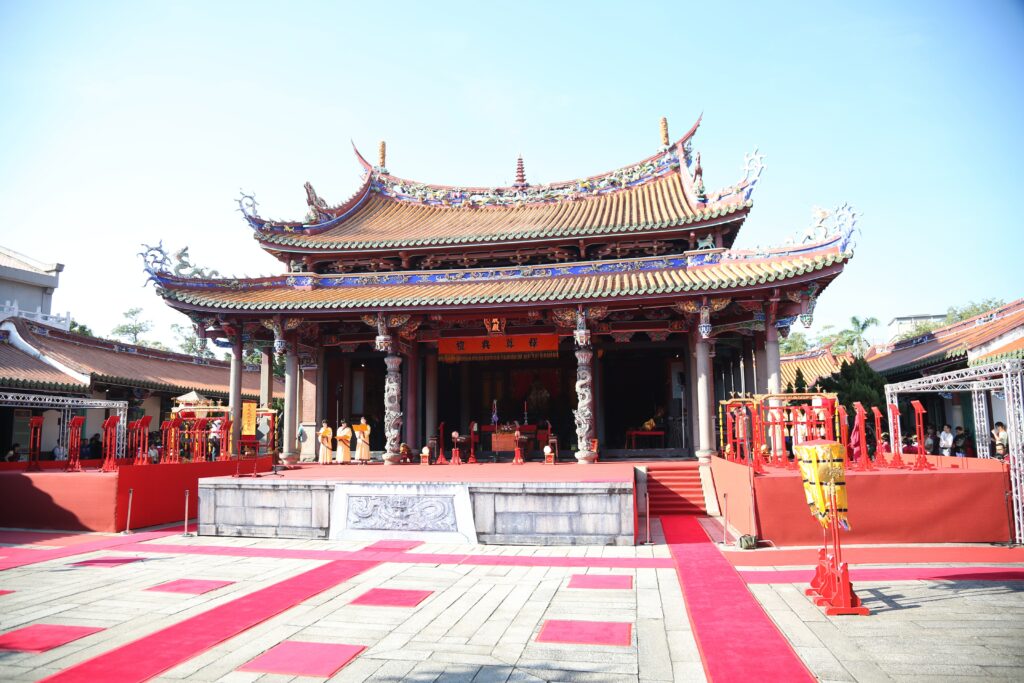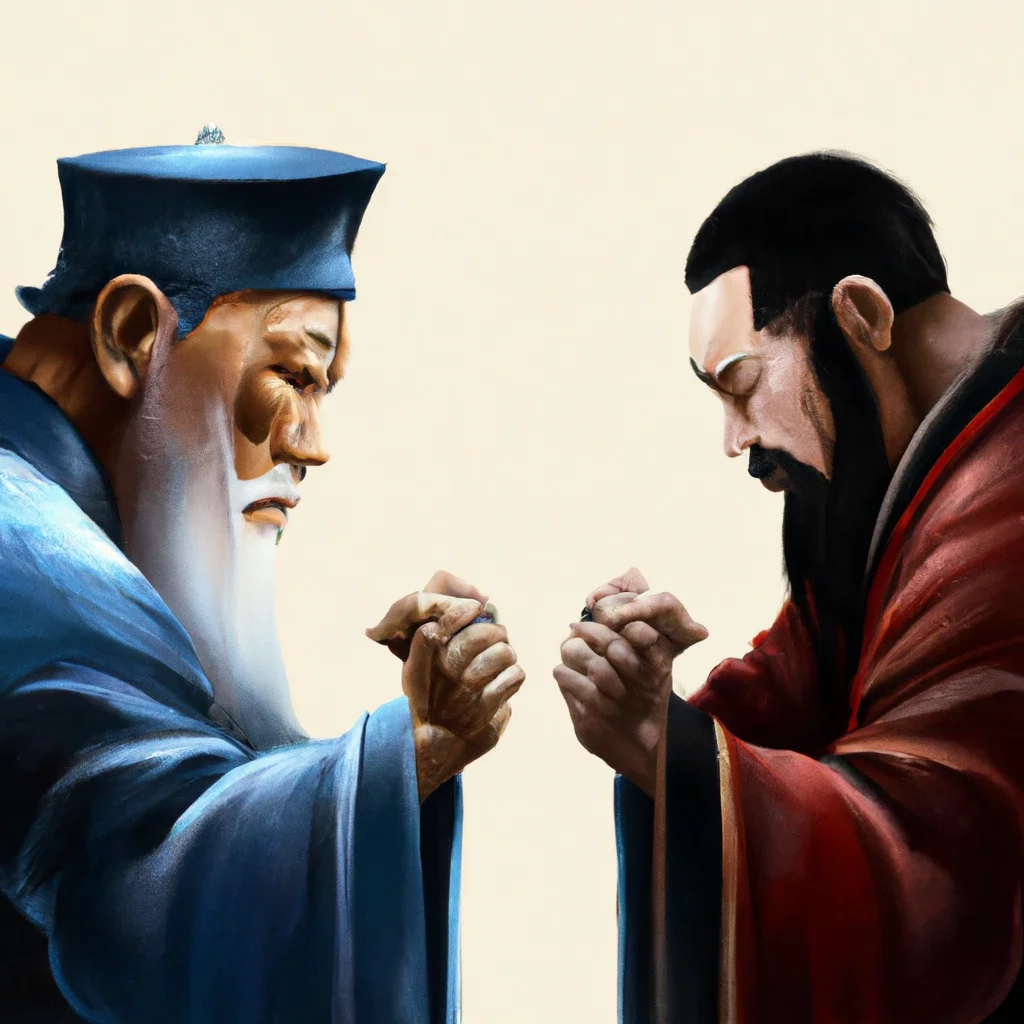Confucianism is a philosophy that was initially introduced by Confucius, in China during the sixth century BC. Confucianism teaches that humans are good by nature and can improve themselves through personal and communal effort. Confucianism has significantly impacted Chinese culture and society, shaping important aspects of both. It was popularized during the time of the Warring States (481–221 b.c.) until the Song dynasty (a.d. 960–1279).
Neo-Confucianism is a school of thought that represents the developments in Confucianism. These changes happened during the Song dynasty until the Qing dynasty fell around 1644–1911. Scholars argue this philosophy is a misleading portrayal of a unified and normative movement. The movement has a large volume of literature and various schools of thought.

Canonical Texts
Confucianism and Neo-Confucianism are known for not having any creeds or official dogmas. These schools of thought are traditional and prefer to be identified through the Five Classics (Wu jing ). These books are Book of Poetry, History, Rites, Changes, and the Spring and Autumn Annals.
Scholars consider Zhu Xi (Chu-Hsi) to be a great Neo-Confucian philosopher. He wrote many pieces of literature that were left unexplained without official orthodoxy or revealed dogmas. These lead to the emergence of diverse creative and novel interpretations.
Existential Quest
Confucianism and Neo-Confucianism converge on existential-religious questions. Both these popular movements share the same ultimate values that shape human living. These ideals and virtues work towards creating and maintaining a harmonious and civilized society.
Confucius and his successors designed a dynamic and relational understanding of the concept of “knowing” in Chinese thinking. Neo-Confucianism explicitly advocates against discovering the truth via abstract, essentialist conceptualizations. These scholars believed the natural world should be explained through being adept in one’s relations with others. It is through these relationships that society can create greater possibilities.
These existential questions help build trust in the validity of these relations. It often leads to familial and social harmony. The movement believes that knowing how to relate genuinely to others will help you fulfill your responsibility toward them.
Confucianism and Neo-Confucianism were initially founded in the quest for authentic human living. Both movements used innovative, contextualized appropriations of ancient folk traditions to gain knowledge. Confucianism built the founding pillars, and Neo-Confucians continued adding interpretive layers of meaning. Confucianism uses a significant amount of classic terminology. Neo-Confucianism took the texts and made modern adaptations. This process saved them from creating new systems of thought in their existential quest for meaningfulness.
Human Fulfilment
Interrelationality and intersubjectivity are commonly misunderstood concepts in Confucian and Neo-Confucian texts. This quest is defined as realizing the fullness of human nature. The fullness of human nature is considered the highest virtue of ren, i.e., humanness. Confucianism believes that those who do not actively seek ren (“humanness”) deny themselves their humanity’s fullness. Neo-Confucianism proposed different methodological approaches to advance this quest; however, the existential quest remains the same.
Human Nature
Mencius (Mengzi) and Xunzi (Hsün-Tzu) are two major Confucian philosophers who contributed significantly to the movement. These characters refer to human nature multiple times and often represent Confucianism’s idealist and rationalist wings. Their teachings advocated for proper education and self-cultivation to develop the cardinal virtues of humanness, appropriateness, propriety and wisdom.

The Five Constants
Confucianism is not limited to the human self but extends to the cosmological, social, and familial dimensions of a human being’s life. Classic Confucian paradigms differ from Neo-Confucianism as the latter insists on the personal self-cultivation of the Five Constants. They do not serve a higher entity; however, they believe in the Way of Heaven. Scholars argued that Heaven had given humanity a Mandate to follow to achieve virtuous living.
Familiarity and Ancestor Veneration
Confucians and Neo-Confucians teach that the proper relational ordering of society begins at the familial level. The human macrocosm sees society’s starting point with harmony existing at all levels of familiarity. Good filial relations are often seen through ancestor veneration. It begins at the child-to-parent level. The next level is the scholar-gentry level, the emperor to his ancestors and finally, the ancestors to Heaven. This order is crucial to improve the well-being of the nation. Familiarity with Confucianism and Neo-Confucianism is demonstrated through a public ritual expression of ancestor veneration. During the reign of imperial China, this gratuity was viewed as necessary to maintain harmony in religion, culture and society.
Birth of Neo-Confucian Schools of Thought
Centuries after the introduction of Confucianism, groups of scholars set out to reinterpret traditional Confucian classical texts. This action allowed them to compete ideologically, intellectually and spiritually with the popular movements known as Daoism and Buddhism. During the reign of the Song Dynasty, the contributions to Neo-Confucian thought helped formulated new answers. These advancements in theology were crucial to confronting the challenges raised by followers of Daoism and Buddhism. New innovative schools of thought came into existence, leading to Confucianism’s revival and revitalization.
Early Neo-Confucian Advancements
Followers of the Neo-Confucian school of thought were explicit in their condemnation of Buddhism and Daoism. The scholars from this movement combined metaphysical elements found in both religions. Neo-Confucianism comprises essential Daoism and Buddhism books such as the Analects, the Mencius, the Book of Changes, and the Book of Rituals. This feature gave the Neo-Confucians the perception that they were following and improving their predecessors’ vision. They prioritized innovation and helped the Confucian notion of life under threat from its two main rivals. Neo-Confucianism created the metaphysical framework that would counter the attractiveness of Daoist and Buddhist metaphysical systems.







































